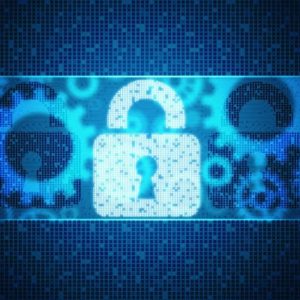7 Habits of Highly Effective PC Users
Security is an incredibly important part of running any business, but unless you’re a professional IT technician, you may run into a couple of roadblocks while implementing a solution. Chief among these is not knowing exactly what you’re protecting your business from. Keep the following tips in mind to reinforce your  security strategy and preserve your business infrastructure’s integrity.
security strategy and preserve your business infrastructure’s integrity.
Implement Strong Passwords
Weak passwords are, not surprisingly, a major problem for all types of businesses. Strong passwords are practically impossible to remember, so users tend to opt for easy, less secure passwords when it comes time to create a new one. The truth of the matter is that strong passwords are essential if you want to optimize security. Be sure to include both upper and lower-case letters, numbers, and special symbols in your credentials.
Use a Password Manager
The increase in popularity for password managers means that there is no longer any reason not to use secure passwords. Since the main reason not to use a secure password is that they are difficult to remember, the password manager handles this task for you. Passwords are stored in a secure digital space where they are called upon as needed, allowing you to optimize security like never before.
Implement Two-Factor Authentication
Passwords might not be the most secure method of protecting accounts, but a method called two-factor authentication can help. Two-factor authentication creates secondary credentials that you use to access an account. These credentials are usually delivered via a secondary email account or a personal device. If hackers see that they need other credentials besides your username or password, they might think twice about attempting to breach your account. After all, hackers like simplicity, and if they have to work extra hard for something, they might be less likely to pursue the attempt.
Prevent Unnecessary Online Payments
The Internet has allowed organizations and individuals to shift the bulk of their consumer behaviors to online retailers. While it might be tempting to just use your credit cards for any online purchase, it’s important to remember that not every website will be protected for such transactions. You should only use credentials on encrypted websites so that they cannot be stolen by onlooking hackers. Always be sure to check the security protocol used by a website before entering any sensitive information into them.
Avoid Links and Attachments from Unknown Messages
You might receive spam messages in your email inbox, and it’s likely that they will contain links and attachments laden with malware or viruses. If they don’t directly contain malware, they might lead to malicious websites where your credentials are stolen. In fact, one of the most dangerous threats out there–ransomware–is typically distributed via phishing attacks within an email. To dodge these threats, you should implement an enterprise-level spam prevention solution.
Stay Away from Public Wi-Fi
Cyber criminals will use public Wi-Fi connections for the express reason that people tend to go where there is a free connection to use. Some examples are coffee shops, local libraries, or public areas where business owners gather. The reason for this is that many public Wi-Fi connections are unsecured, so hackers will have a field day compared to when they are trying to crack a secured, private Wi-Fi connection.
Upgrade Your Operating Systems
Older operating systems aren’t as secure as their newer ones. Nowhere is this more dangerous for a business than when they still run unsupported operating systems like Windows XP. New software offers almost continuous testing, so as critical security flaws are found they are patched, ensuring users have a secure and reliable user experience.






